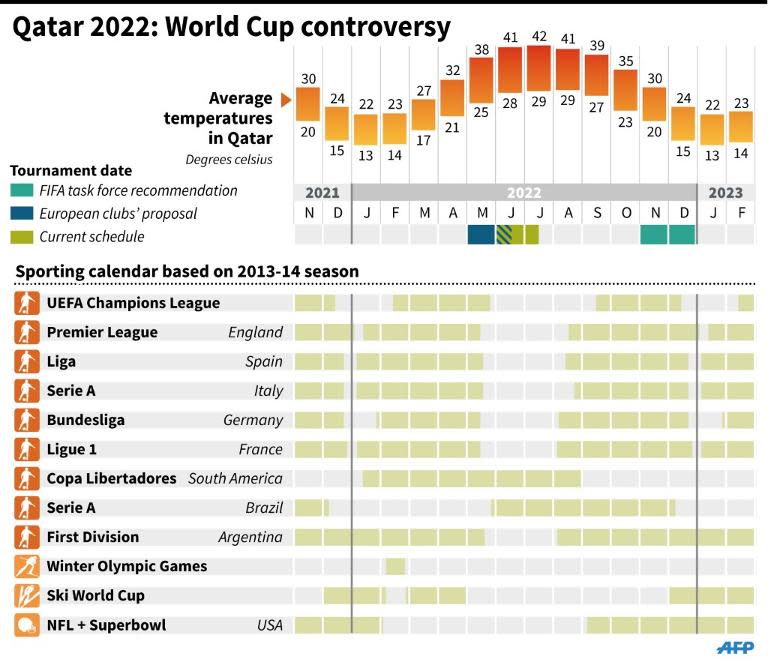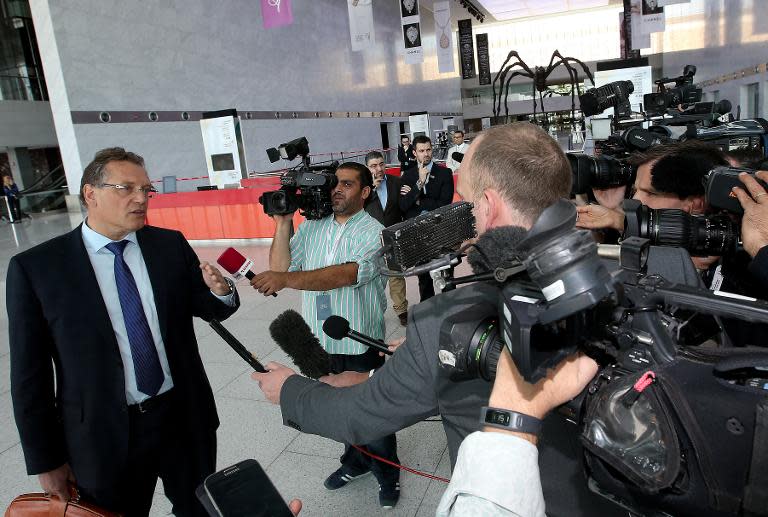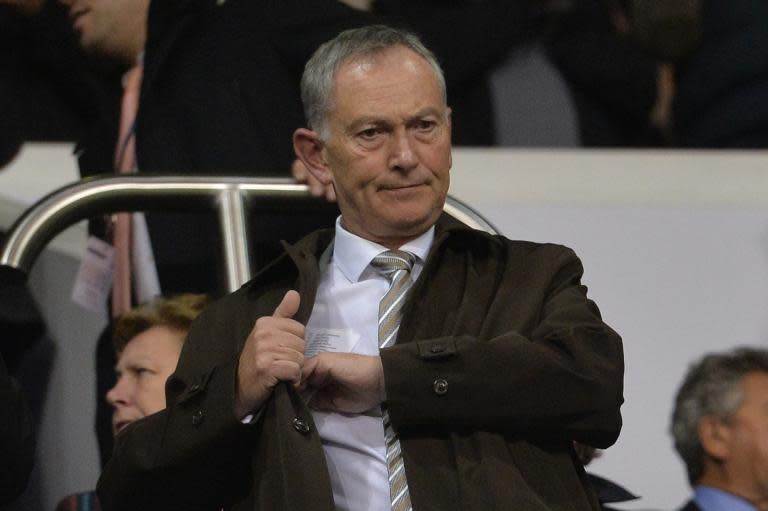Winter World Cup for 2022 sparks Europe anger
A FIFA task force's call on Tuesday for the 2022 World Cup in Qatar to be shortened and held in November-December met immediate condemnation from Europe's major football powers. Football's ruling body said the tournament had to be moved from the traditional summer months because of the scorching temperatures in Qatar. The group made a provisional recommendation for the 2022 tournament to start on November 26 and end on December 23 in a move that risks the wrath of European football leagues and international broadcasters. England's Premier League chief Peter Scudamore said he was "very disappointed" by the decision. Spanish, German and French officials also expressed opposition. A final decision will be made by the FIFA executive committee at a meeting in Zurich, Switzerland, on March 19-20. Fierce lobbying is expected up till then. A November-December tournament was "the most viable period" for the World Cup, according to a FIFA statement released after the task force ended its meeting in Doha. FIFA general secretary Jerome Valcke said the working group touched on "all the options", including holding the World Cup in January and February 2023. "It is clear there are pros and cons for all but there is one solution coming out from this discussion, which is November-December 2022," said Valcke, acknowledging that the proposal would not please everyone. A November 26 to December 23 tournament would be 31 days, one shorter than the 2014 World Cup in Brazil. FIFA said "The proposed event dates have the full support of all six confederations." Qatar, already on the defensive over allegations of corruption surrounding its bid for the 2022 event, said it would accept whatever FIFA decides. "We have always committed ourselves to what the football community decides," said the country's World Cup chief, Hassan al-Thawadi. "We are onboard whatever the executive committee decides." - FIFA dates dilemma - UEFA, Europe's governing body, said it supported the task force's recommendation for a winter tournament. But Europe's top leagues and clubs, who fear a costly disruption to their domestic championships, expressed immediate opposition. "Yeah, very disappointed that's the word, I think, on behalf of all the European leagues and particularly the European clubs who provide most of the players for this World Cup," said Scudamore. The English Premier League chief said Europe's top clubs felt "let down" by UEFA who would see minimal impact on their Champions League. Frederic Thiriez, president of the French league and of the European Professional Football Leagues, called the recommendation "the worst solution." "We are going to stop in November after 13 or 14 games and start again in January. In the meantime, players will not play, the clubs will not make any money, the fans will be deprived of national competitions and television companies will be furious," he told AFP. German Football League boss, Andreas Retting, said FIFA "now has to demonstrate how a solution will work". Germany is one nation that has been predicted to seek compensation for the switch. Spain's football league said the new dates would cause "serious damage" to the normal routine of European domestic championships. The European leagues say that three quarters of the players at the last World Cup came from European leagues. Even within FIFA there is likely to be debate on the final dates. Britain's FIFA vice-president Jim Boyce said the move to winter was "common sense" but he would oppose holding the final as late as December 23 as it was so close to Christmas Day on December 25. FIFA ruled out holding the tournament in January-February because of a clash with the Winter Olympics. But it also said a European club proposal for a tournament in May-June was unworkable because of the heat. Traditionally the World Cup is played in June and July, but summer temperatures in Qatar soar above 40 degrees Celsius (104 Fahrenheit). In November-December, the temperatures would be around 25 degrees Celsius (77 Fahrenheit).













